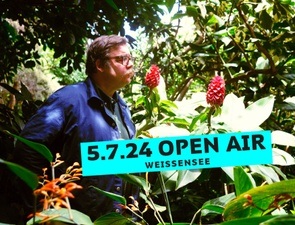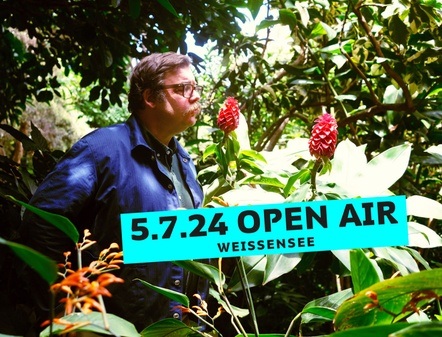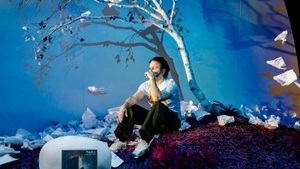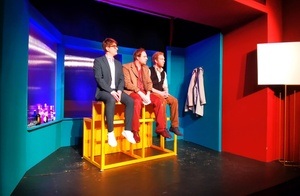PHOTO:
© Foto © 2012, Leo Seidel
La Gioconda
In the organizer's words:
In the early 1970s, Filippo Sanjust found historical prospectuses of LA GIOCONDA from the time of its premiere around 1876 in a Roman studio. The costume designs had also been preserved, and so Sanjust set about reconstructing this production for Deutsche Oper Berlin. In old Italian perspective painting, the Doge's Palace, the Ca' d'Oro or the Giudecca on the Orfano Canal emerge on stage and unfold their maelstrom ... Conductor: John Fiore / Giulio Cilona [Feb 24]; Production: Filippo Sanjust; With Carmen Giannattasio, Marianne Cornetti, Marko Mimica, Judit Kutasi, Joseph Calleja, Noel Bouley and others.The opera is set in seventeenth-century Venice. La Gioconda, a singer with a traveling troupe, is in love with the young nobleman Enzo, who in turn is in love with Laura, the wife of the inquisitor Alvise Badoero. The relationship is further complicated by the intrigues of the spy Barnabà, who loves and desires Gioconda and tries by all means to win the singer over. Gioconda, torn between her love for Enzo and her care for her old blind mother, who always travels with her, becomes entangled in the web of hatred and passion that, starting with Barnabà, wraps itself ever more tightly around her and to which she finally falls victim. After Enzo, who after dangerous entanglements has managed to escape with Laura, has been taken from her forever, Gioconda sees no way out. Barnabà, who thought he had already reached his goal, can no longer prevent her from ending her life.
Amilcare Ponchielli, born in Paderno Fasolaro near Cremona in 1834 and died in Milan in 1886, although he wrote twelve operas, became famous above all as the composer of LA GIOCONDA. Love, passion, hatred - the story about the singer Gioconda holds everything that lovers of great Italian opera expect. Arrigo Boito, who years later was to write the libretti for OTELLO and FALSTAFF, Giuseppe Verdi's last two masterpieces, actually had no reason to write the libretto for LA GIOCONDA under a pseudonym, "Tobia Gorrio". Excitingly and effectively, he transformed Victor Hugo's novel, Angelo, Tyrant of Padua, into a coherent opera text. Enchanting melodies, rousing folk scenes on stage and, above all, the opulent set, some of which even contains original pieces from the time the work was written, make the performance at the Deutsche Oper Berlin a dazzling event that never fails to delight. This content has been machine translated.






